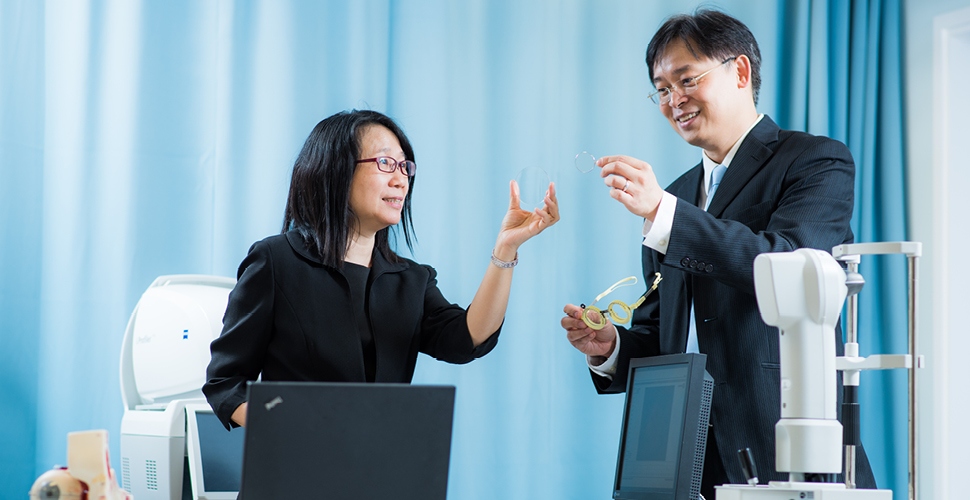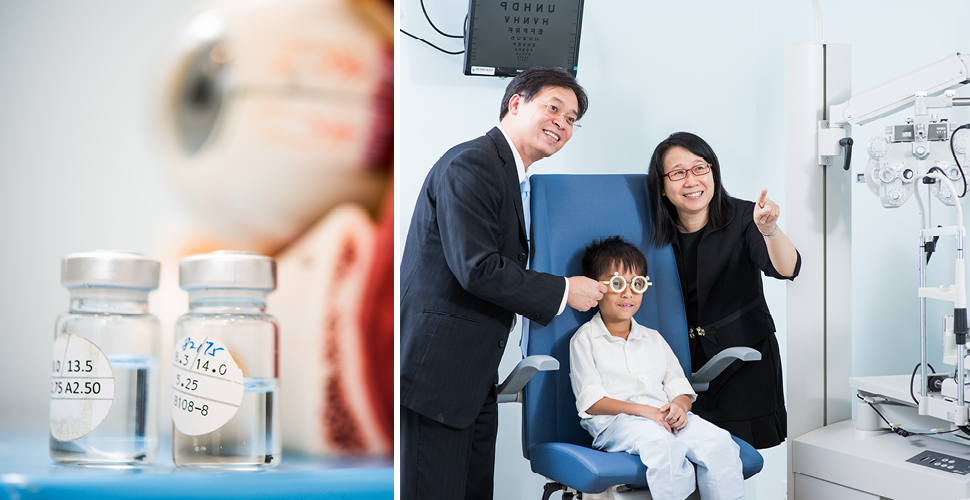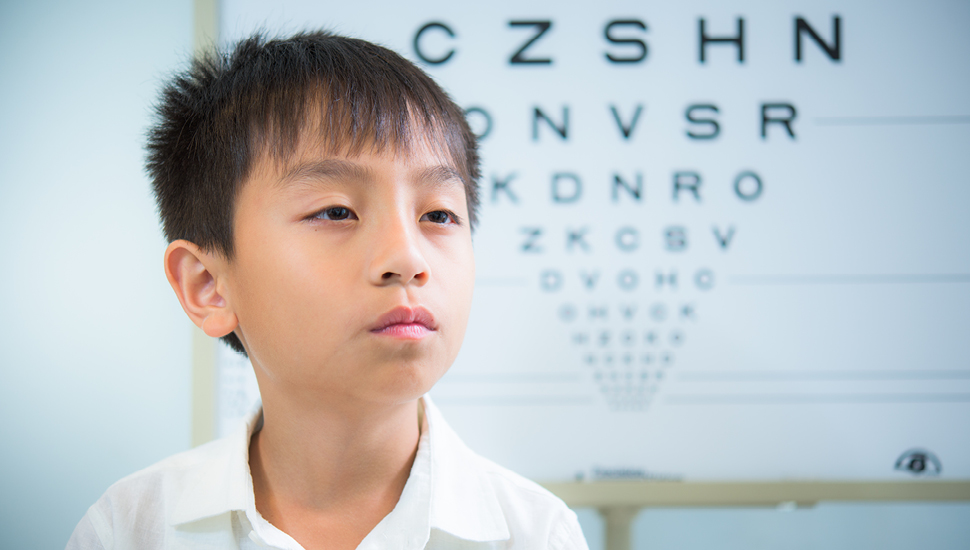Our Stories
Innovating for Social Good
Researchers set sights on controlling myopia
“We are hoping that this lens can become commercialized in the very near future and benefit more children.”
Heavy loads of homework and spending hours on mobile devices are part of children’s lives in Hong Kong today. But these activities can be highly stressful for young eyes.
The number of cases of myopia, or short-sightedness, has grown at an alarming rate in Hong Kong, where it affects more than 40 per cent of primary school age children, and also in Southern China, Singapore and Taiwan. For some, myopia can lead to severe eye problems, including retinal detachment or glaucoma, and even blindness.
A solution may be on the horizon. Prof. To Chi-ho, Prof. Carly Lam and Dr Dennis Tse at The Hong Kong Polytechnic University’s School of Optometry have developed the Defocus Incorporated Soft Contact (DISC) Lens, a multizone bifocal soft contact lens that slows down the rate of myopia and could possibly stop it altogether.

Prof. To said, “The new method involves producing first an image on the retina and then a second image to generate a defocus. In doing so, the DISC Lens makes use of the natural homeostatic mechanism known as emmetropization.” The defocus balances out the negative impact from extensive close-up works that cause accommodative lag in the eyes. By reducing the influence from accommodative lag, DISC Lens helps stop excessive long growth of the eyeball that causes myopia.
Clinical trial has shown the new lens to be effective in bringing down myopia progression by about 50% among Hong Kong school children aged 8 to 13. Since the lens takes advantage of the eyes’ natural growth mechanism, wearers avoid the potential risks of surgery or drugs.

The DISC lens could also benefit the treatment of other forms of refractive error such as hyperopia, more commonly known as long-sightedness. This technology has been patented in Australia, mainland China, the US and various European countries and won the Grand Prize and a Special Gold Medal at the 39th International Exhibition of Inventions of Geneva.
The DISC Lens holds great promise for the millions of people suffering from myopia worldwide. “We are hoping to expand the clinical studies and find the optimal design with this lens,” said Prof. Carly Lam. “We wish that this lens can become commercialized in the very near future and benefit more children.”






